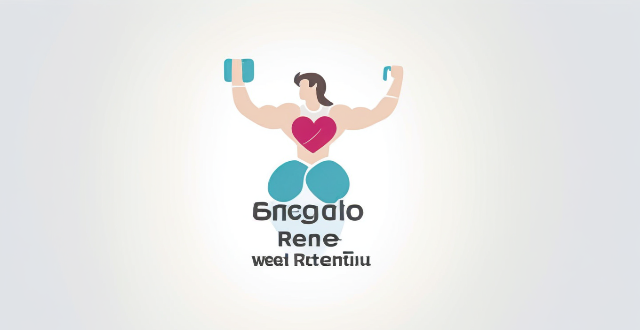Cardiovascular Weight

Can exercise reduce the risk of developing cardiovascular diseases ?
Cardiovascular diseases (CVDs) are a leading cause of death worldwide, and regular physical activity or exercise is one of the most effective ways to reduce the risk of developing them. Exercise helps improve blood circulation, lower cholesterol levels, reduce inflammation, manage weight, and improve glucose control. The American Heart Association recommends at least 150 minutes per week of moderate-intensity aerobic activity or 75 minutes per week of vigorous-intensity aerobic activity, along with muscle-strengthening activities at least two days per week.

What is the difference between cardiovascular and resistance training in health management ?
The text discusses the differences between cardiovascular and resistance training, highlighting their unique benefits and examples of each. Cardiovascular training strengthens the heart, aids in weight management, and improves endurance, while resistance training enhances muscle strength, bone density, and metabolism. Combining both types of exercise leads to a well-rounded fitness regimen that addresses multiple aspects of health, including endurance, strength, flexibility, and balance. The text suggests ways to incorporate both forms of exercise into a workout routine for optimal health management.

Does lifting weights help with weight loss ?
Weight loss is a common goal for many people, and weightlifting is one of the most popular methods. However, does lifting weights help with weight loss? This article explores the benefits and drawbacks of weightlifting as a means of weight loss. One of the main benefits of weightlifting is muscle growth, which can lead to an increase in metabolism and help with weight loss. In addition, weightlifting can also help with fat burning and improved cardiovascular health. However, there are also some potential drawbacks to weightlifting, including high initial costs, potential injuries, and a significant time commitment. If you are interested in trying weightlifting as a way to lose weight, make sure you do your research and find a program that fits your needs and lifestyle.

What are the best exercises for weight loss ?
Losing weight requires a combination of a healthy diet and regular exercise. The best exercises for weight loss include cardiovascular exercises like running, cycling, swimming, and jumping rope; strength training exercises like squats, lunges, push-ups, and planks; and high-intensity interval training (HIIT) workouts like Tabata, burpees, and mountain climbers. By incorporating these exercises into your routine, you can burn calories, build muscle, and improve your overall fitness level.

Can fitness trackers help me achieve my weight loss goals ?
Fitness trackers can support weight loss by tracking steps, heart rate, sleep, and calories. They provide motivation, accountability, and data for decision making. However, they have limitations such as overreliance on technology and accuracy concerns. It's important to use them wisely and in conjunction with other healthy habits for effective weight loss.

What exercises are beneficial for women's health ?
Regular physical activity is crucial for women's health, preventing chronic diseases, improving mental health, and boosting self-esteem. Aerobic exercises like running, swimming, and cycling are great for cardiovascular health and weight management. Strength training exercises such as weightlifting, resistance bands, and bodyweight exercises can improve bone density and reduce the risk of osteoporosis. Yoga helps to improve flexibility, reduce stress, and enhance mental clarity, while Pilates focuses on core strength, flexibility, and balance. Incorporating these exercises into a fitness routine can lead to improved cardiovascular health, stronger bones and muscles, reduced stress levels, and enhanced overall well-being.

What role does cardiovascular exercise play in managing daily stressors ?
Cardiovascular exercise is an excellent way to manage daily stressors, as it reduces the body's physiological response to stress and leads to improved mental and physical health. The benefits of cardiovascular exercise include reduced stress levels, improved sleep quality, increased energy levels, and better mental health. To get started with cardiovascular exercise, set goals, start slow, find activities you enjoy, and mix up your workouts. Incorporating cardiovascular exercise into your daily routine can help you manage stress and improve overall well-being.

Can climate change lead to an increase in cardiovascular diseases ?
The article discusses the relationship between climate change and cardiovascular diseases, highlighting how extreme heat events, changes in air quality, and extreme weather patterns can contribute to an increase in heart-related illnesses. It explains how dehydration and electrolyte imbalances caused by heat stress can strain the heart, leading to chest pain, shortness of breath, and even heart failure. The article also points out that rising temperatures can cause pollutants like ozone and particulate matter to become more concentrated in the air we breathe, irritating the lungs and reducing oxygen uptake, which can strain the heart. Additionally, extreme weather events like hurricanes, floods, and wildfires can have both direct and indirect effects on cardiovascular health by causing physical trauma, stress, lack of access to medical care, and disruptions in medication adherence and continuity of care for those with chronic cardiovascular diseases. The article concludes by emphasizing the importance of taking steps to protect cardiovascular health, such as staying hydrated during hot weather, monitoring air quality, and having emergency plans in place for natural disasters.

Can aerobic exercise help me lose weight ?
Aerobic exercise, or cardio, is an effective way to lose weight. It increases heart rate and breathing, leading to higher calorie burn during and after the workout. Moderate-intensity aerobic activities also use fat as fuel, improving metabolic rate for further calorie expenditure at rest. Regular cardio can strengthen heart muscles for efficient blood pumping and contribute to muscle endurance. Types of aerobic exercises include running, cycling, swimming, walking, and group fitness classes like Zumba. To successfully incorporate aerobic exercise into a weight loss plan, it's recommended to start slowly, mix up activities, stay consistent, and combine with strength training. Potential challenges such as overexertion and plateaus in progress should be managed by adjusting routines. Overall, aerobic exercise can aid in weight loss when part of a balanced fitness regimen.

How much exercise do I need to maintain good cardiovascular health ?
Maintaining good cardiovascular health requires regular exercise, with the American Heart Association recommending at least 150 minutes of moderate-intensity aerobic activity or 75 minutes of vigorous-intensity aerobic activity each week, along with two or more days of muscle-strengthening activities. The amount of exercise needed may vary depending on individual needs and fitness level, and other lifestyle factors such as diet, stress management, sleep, and avoiding smoking and excessive alcohol consumption can also contribute to good cardiovascular health.

How does exercise improve cardiovascular health ?
This essay explores the ways in which exercise can improve cardiovascular health. It explains how regular physical activity strengthens the heart muscle, increases blood flow, and lowers blood pressure. The essay also discusses how exercise can reduce risk factors for cardiovascular disease, such as obesity, diabetes, and high cholesterol levels. Additionally, it highlights the positive effects of exercise on mental health and well-being, including stress reduction, depression management, and improved quality of life. Overall, the essay emphasizes the importance of regular exercise for a healthy lifestyle and encourages readers to incorporate physical activity into their daily routines.

Is weight-bearing exercise really necessary for bone health ?
Weight-bearing exercises are often recommended for maintaining bone health, but is it really necessary? Let's explore this topic in detail. Weight-bearing exercises include any activity that requires you to carry your own body weight, such as walking, jogging, dancing, climbing stairs, and weightlifting. These exercises can help strengthen bones and muscles, improve balance and coordination, and reduce the risk of falls. Maintaining healthy bones is crucial for overall health and well-being. Strong bones provide support and protection for your body, allowing you to move with ease and perform daily activities without pain or discomfort. Additionally, having strong bones can help prevent fractures and other injuries. Weight-bearing exercises have numerous benefits on bone health, including stimulating bone growth, improving bone density, reducing the risk of falls and injuries, and promoting overall health and well-being. However, there are some alternatives to weight-bearing exercise that may be beneficial for people who cannot engage in these types of activities. These include resistance training, yoga or Pilates, and swimming. In conclusion, weight-bearing exercises are highly recommended for maintaining bone health due to their numerous benefits on bone growth, density, and overall health and well-being. However, there are alternative exercises that may be beneficial for people who cannot engage in weight-bearing activities. It's always best to consult with a healthcare professional before starting any new exercise program.

Can aerobic exercise improve my cardiovascular health ?
Aerobic exercise is essential for maintaining and improving cardiovascular health, offering benefits such as strengthened heart muscle, lowered blood pressure, increased HDL cholesterol, reduced inflammation, weight management, improved circulation, and better blood sugar regulation. Regular aerobic activities like walking, jogging, cycling, swimming, or group fitness classes can significantly enhance overall heart health. The American Heart Association recommends at least 150 minutes of moderate-intensity aerobic exercise weekly, spread throughout the week, to achieve these benefits.

Can organic food help with weight loss ?
Organic food may aid weight loss by reducing exposure to harmful chemicals, offering higher nutrient content, having lower calorie density, and improving digestion. Incorporating organic options slowly, choosing locally grown produce, reading labels carefully, planning meals, and including protein sources can support a healthy eating plan conducive to weight loss.

What are the favorite exercises of popular celebrities ?
Celebrities have different preferences when it comes to exercise, but they all share a common goal of staying fit and healthy. Some popular exercises among them include yoga, Pilates, cardiovascular exercises, and weight training. Yoga is favored by Jennifer Aniston, Gwyneth Paltrow, and Madonna for its benefits on flexibility, strength, and balance. Pilates is preferred by Kim Kardashian, Vanessa Hudgens, and Kate Hudson for strengthening the core muscles and improving posture. Cardiovascular exercises like running, cycling, and swimming are enjoyed by Taylor Swift, Emma Stone, and Ryan Reynolds for burning calories and improving cardiovascular health. Weight training is popular among Dwayne "The Rock" Johnson, Chris Hemsworth, and Gal Gadot for building muscle mass and increasing strength. Overall, celebrities incorporate these activities into their daily routines to maintain their impeccable physique and overall well-being.

How much weight should I lift during strength training ?
The amount of weight you should lift during strength training depends on various factors such as your fitness level, goals, and experience. Here are some guidelines to help you determine the appropriate weight for your routine: start with a light weight, increase gradually, choose the right number of repetitions, listen to your body, and consider your goals. Remember to consult with a fitness professional or personal trainer to develop a customized program that meets your specific needs and goals.

Can strength training help with weight loss ?
Strength training, involving the use of resistance to induce muscular contraction and build strength, can significantly contribute to weight loss by increasing metabolic rate, boosting post-exercise oxygen consumption (EPOC), improving body composition, and enhancing appetite control. Incorporating strength training into your routine, starting slowly and focusing on compound movements while staying consistent, can help achieve weight loss goals.

What are some examples of aerobic exercises ?
Aerobic exercises are physical activities that increase heart rate and breathing to deliver more oxygen to muscles, improving cardiovascular health, burning calories, and reducing chronic disease risk. Examples include using cardiovascular machines like treadmills and elliptical trainers, outdoor activities such as running and cycling, group fitness classes including aerobic dance and spinning, sports like basketball and tennis, and low-impact options like brisk walking and water aerobics. Benefits encompass improved heart health, weight management, increased stamina, mental health enhancement, and immunity boost. Safety precautions include consulting a healthcare professional, proper warm-up and cool-down, staying hydrated, and listening to your body to avoid overexertion.

Can yoga help with weight loss ?
Yoga can be a valuable addition to a weight loss program due to its ability to improve muscle tone, increase flexibility, reduce stress levels, and promote mindful eating habits. Incorporating yoga into your routine along with other forms of exercise and healthy lifestyle habits can help you achieve your weight loss goals and improve overall health and well-being.

What are some healthy dinner recipes for weight loss ?
The text provides a list of eight healthy dinner recipes that can aid in weight loss. These recipes include grilled chicken with steamed vegetables, quinoa salad with roasted veggies, salmon with asparagus, lentil soup, turkey chili, stuffed bell peppers, cauliflower rice stir fry, and zucchini noodles with pesto sauce. The text emphasizes the importance of eating a balanced meal before bedtime to maintain a healthy weight and ensure the body gets necessary nutrients for optimal functioning.

Can running help me lose weight quickly ?
Running is a popular form of exercise that can help you lose weight quickly, but it's important to understand the factors that contribute to weight loss and how running fits into the equation. In this response, we'll explore the benefits of running for weight loss and provide tips on how to maximize your results. Benefits of Running for Weight Loss: 1. Burns Calories: Running is a high-intensity cardio workout that burns a significant number of calories per minute. The more calories you burn during exercise, the easier it is to create a calorie deficit, which is necessary for weight loss. 2. Increases Metabolism: Running can boost your metabolism, allowing you to burn more calories even when you're not exercising. This increased metabolic rate can lead to faster weight loss over time. 3. Builds Muscle: Running helps build lean muscle mass in your legs, glutes, and core. Muscle tissue burns more calories at rest than fat tissue, so having more muscle can contribute to faster weight loss. Tips for Maximizing Weight Loss with Running: 1. Set Realistic Goals: Aim for a healthy rate of weight loss, such as 1-2 pounds per week. Rapid weight loss can be harmful and difficult to maintain in the long term. 2. Combine Cardio and Strength Training: Incorporate strength training exercises into your routine to build muscle and increase your overall calorie burn. Focus on compound movements like squats, lunges, and deadlifts to target multiple muscle groups at once. 3. Stay Consistent: Make running a regular part of your routine, aiming for at least 3-4 sessions per week. Consistency is key to achieving long-term weight loss goals. 4. Watch Your Diet: Pay attention to what you eat and try to consume a balanced diet rich in whole foods, lean proteins, and healthy fats. Avoid processed foods, sugary drinks, and excessive amounts of alcohol, which can hinder weight loss efforts. 5. Rest and Recovery: Allow your body time to rest and recover between running sessions to prevent injury and avoid burnout. Incorporate stretching and foam rolling into your routine to aid recovery and improve flexibility. Conclusion: While running can be an effective way to lose weight quickly, it's important to approach your fitness journey with patience and realistic expectations. By combining running with strength training, watching your diet, and staying consistent with your workouts, you can maximize your weight loss results and achieve a healthier lifestyle.

How does weight influence a woman's fertility ?
Fertility can be affected by weight, with both underweight and overweight conditions presenting challenges. Underweight may lead to hormonal imbalances, disrupting ovulation and menstrual regularity, while overweight or obese women might face issues like PCOS, endocrine disruptions, and inflammation. Maintaining a healthy weight is crucial for optimal fertility, supporting regular ovulatory cycles, improved hormonal balance, and better pregnancy outcomes. Tips for managing weight include consulting healthcare professionals, following a balanced diet, exercising regularly, managing stress, avoiding crash diets, and monitoring menstrual cycles.

Can eating a healthy diet help with weight loss ?
Eating a healthy diet is crucial for weight loss and overall health. A balanced meal plan can increase satiety, improve nutrient intake, reduce cravings, and enhance digestion. To create a healthy meal plan, focus on whole foods, control portion sizes, choose healthy fats, stay hydrated, and plan ahead. By following these tips, you can achieve your weight loss goals while nourishing your body with essential nutrients.

Can engaging in sports help with weight management ?
Engaging in sports can help with weight management by increasing calorie burn, improving metabolism, increasing muscle mass, reducing the risk of obesity-related diseases, and providing mental health benefits. However, a healthy diet and lifestyle habits are also essential for long-term success.

Is it better to do cardio or strength training for weight loss ?
When it comes to weight loss, both cardio and strength training have their benefits. Cardio exercises like running, cycling, and swimming can burn a significant number of calories in a short amount of time and improve cardiovascular health. Strength training helps build lean muscle mass, which raises your resting metabolic rate and burns more calories even at rest. While both types of exercise have their advantages, combining them into a well-rounded fitness routine is often the most effective approach for weight loss. A balanced routine that includes both cardio and strength training will improve various aspects of your fitness, including cardiovascular health, muscular strength, and flexibility.